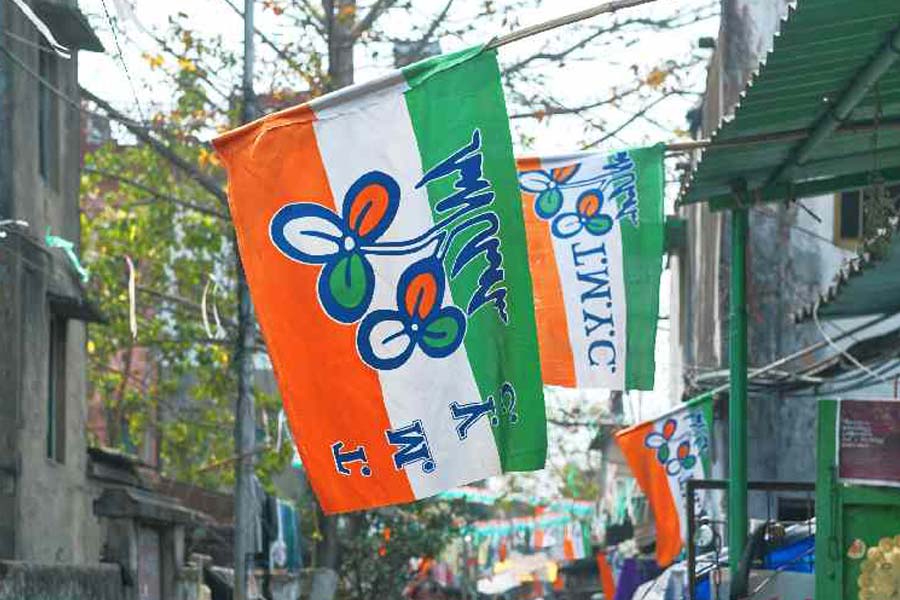 |
| Make hay while the sun shines |
Silchar, Feb. 10: Lapses in border fencing in Karimganj district of Assam have delivered a bonanza to a tea estate of Bangladesh that has grabbed a large chunk of Indian land.
The fence has been erected way beyond the stipulated 150metre mark from zero line, leaving land belonging to India at the mercy of Pallarthal tea estate.
Karimganj deputy commissioner M. Angamuthu attributed the lapse to “indifferent and shoddy” barbed wire fencing by a construction agency along the 20km stretch of the border with Bangladesh in the district’s Nilambazar sector near Madanpur tea estate.
Talking over phone from Karimganj last night, Angamuthu said he had visited the border stretch on Monday following public complaints on “many an anomaly” in raising the 8ft fencing with a concertina circle in its middle to curb infiltration from the adjoining Juri enclave under Sylhet division in Bangladesh.
One of the most glaring among such anomalies, Angamuthu pointed out, was the construction of barbed wires way behind the mandatory gap of 150metres along the international border, leaving at some places a 1km gap between the construction sites and the actual border line.
Such a gap has come as a bonanza for Pallarthal tea estate located along the border and its authorities are allegedly grabbing Indian land lying beyond the untended areas circumscribed by the border fencing.
Sources in Mandanpur tea garden alleged that as much as 300 acres of its land lying between the borders of the two countries had been taken possession of by alleged land sharks.
Madanpur tea estate, a 398-hectare property, is owned by the Calcutta-headquartered All India Tea and Trading company Ltd.
Angamuthu said he would refer complaints about the shoddy construction — much away from the compulsory 150metre gap along the border — undertaken by the public sector National Projects’ Construction Corporation (NPCC) to the Union home ministry through the state government soon. The home ministry is the nodal body to monitor the border fencing chores.
No one from the NPCC could be contacted for comments on the raging controversy on the barbed wire fencing in the Karimganj sector.
Another public sector unit, the National Building Construction Corporation, is also engaged in the sector to raise fences between the border town and district headquarters of Karimganj and Bhanga, a distance of about 25km.
Angamuthu also criticised the “low standard of civil construction in border fencing” along the Nilambazar-Churaibari stretch of the Indo-Bangladesh border.
He alleged that the thickness of the platform of the middle line of the border fencing opposite Madanpur tea plantation “is not uniform at all the sites” in this stretch.










